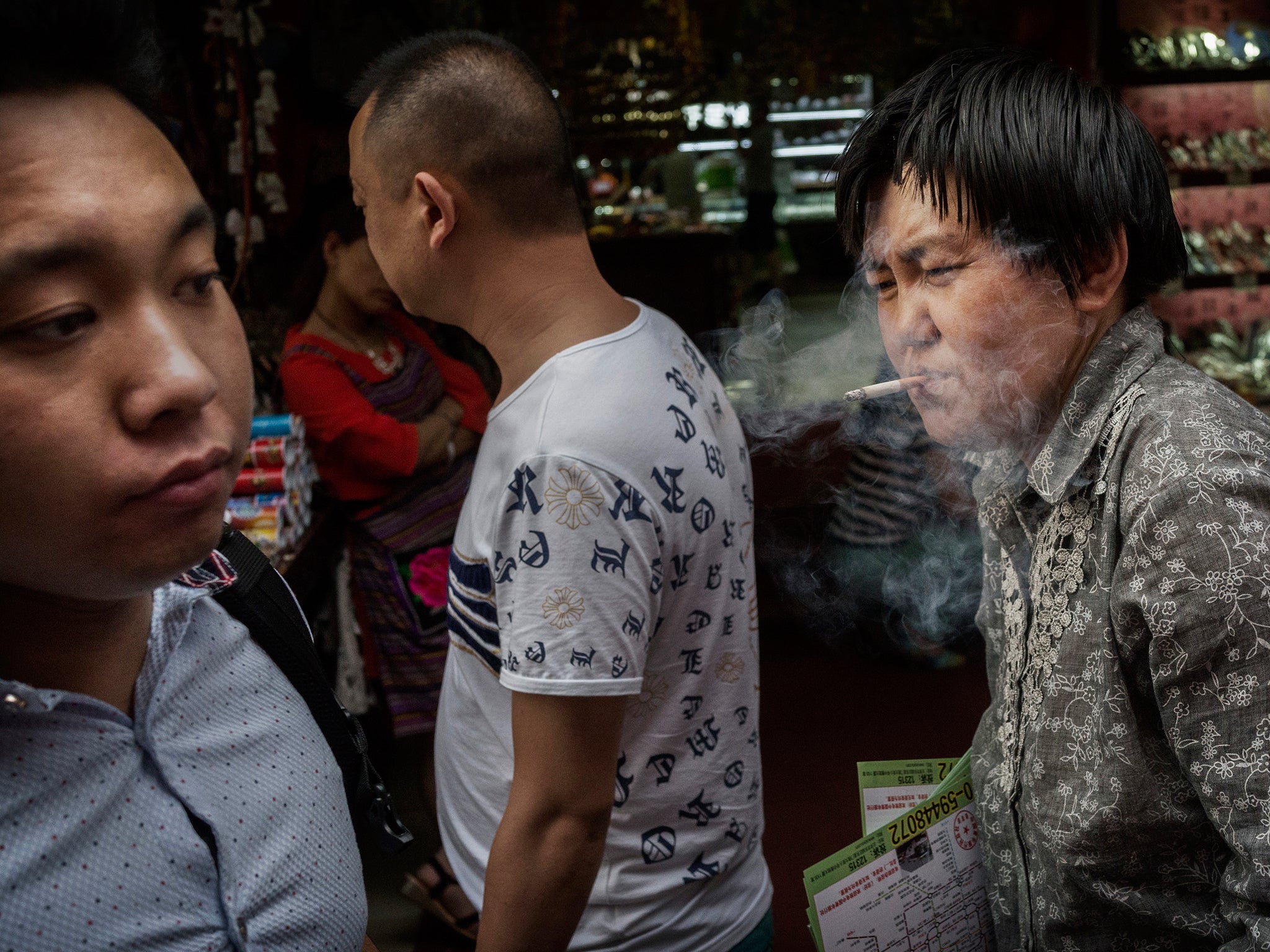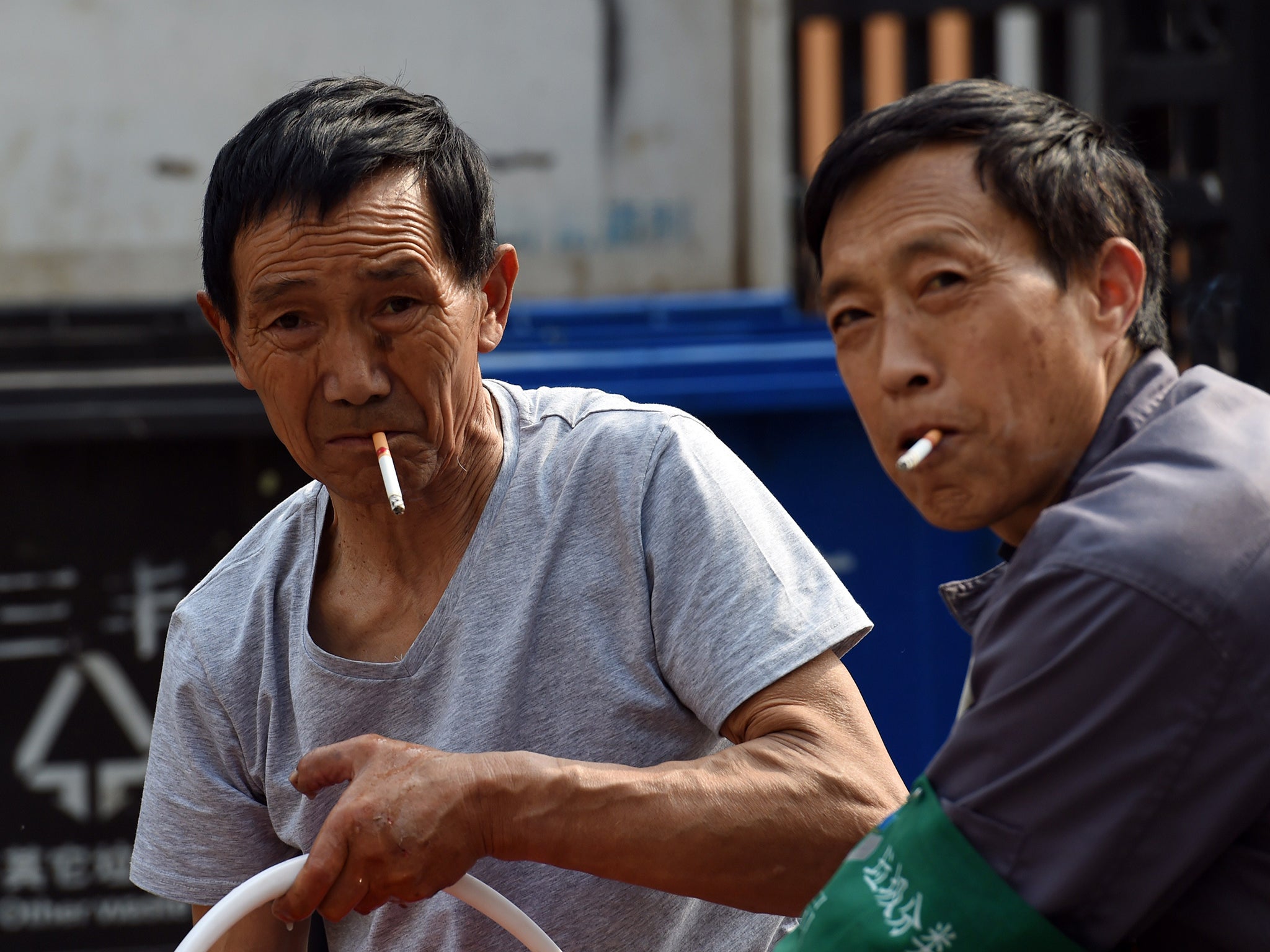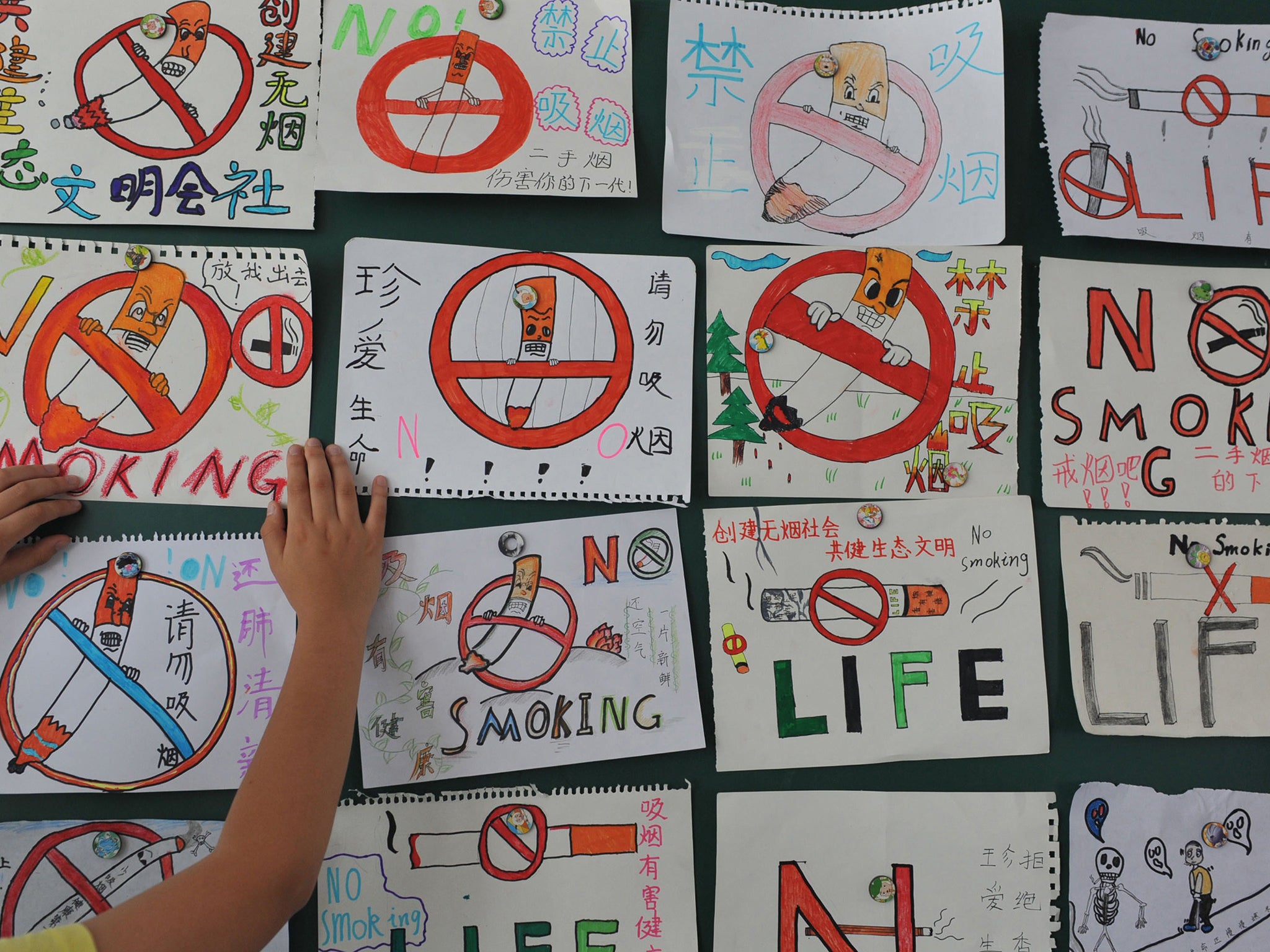China cracks down on tobacco advertising in drive to stop young people smoking
China produces and consumes the most tobacco of any nation in the world

Your support helps us to tell the story
From reproductive rights to climate change to Big Tech, The Independent is on the ground when the story is developing. Whether it's investigating the financials of Elon Musk's pro-Trump PAC or producing our latest documentary, 'The A Word', which shines a light on the American women fighting for reproductive rights, we know how important it is to parse out the facts from the messaging.
At such a critical moment in US history, we need reporters on the ground. Your donation allows us to keep sending journalists to speak to both sides of the story.
The Independent is trusted by Americans across the entire political spectrum. And unlike many other quality news outlets, we choose not to lock Americans out of our reporting and analysis with paywalls. We believe quality journalism should be available to everyone, paid for by those who can afford it.
Your support makes all the difference.China has enforced sweeping new rules on to restrict tobacco advertisements, in its latest step to rein in a widespread habit that has caused a massive health crisis.
More than 300 million people have made cigarettes part of the social fabric in the world's biggest producer and consumer of tobacco, and another 740 million are exposed to second-hand smoke, state media have reported.
Revisions to the national advertisement law, passed in April, ban tobacco advertisements in mass media, public places, on public vehicles and outdoors.

Anti-smoking advocates praised the changes, but warned that some parts of the law could be abused by the country's powerful tobacco monopoly, which they say has pushed back against a series of ambitious anti-smoking measures.
"They can't stop it, but they can create a headache," said Bernhard Schwartlander, the World Health Organisation's representative in China, referring to the country's anti-smoking campaign.
"The problem is the language that has been chosen, the interpretation of those words sometimes opens room for discussion, which the tobacco industry will try to use," he added.
China's powerful State Tobacco Monopoly Administration, until February run by the younger brother of Premier Li Keqiang, had lobbied intensely to water down proposed restrictions on advertising, sources told Reuters last year.
The state tobacco monopoly, which controls the bulk of the domestic market, wields extraordinary power because it provides an estimated 7 percent to 10 percent of government revenue, or as much as 816 billion yuan ($127 billion) in 2013.

But many big cities, including Beijing, already have tougher curbs on smoking than rural areas, and billboards promoting cigarettes are seldom seen in the capital.
The revised advertising law also includes harsher punishments for false advertising, prohibits advertising in schools or on educational materials, and bars endorsements of products by children younger than 10.
Health officials and anti-smoking campaigners said the changes particularly targeted smoking among the young.
In an interview, Liang Xiaofeng, deputy director of China's Center for Disease Control and Prevention (CDC), said he expected the government to further hike taxes on tobacco, since teenaged smokers are more price-sensitive.
"We believe that hiking prices will impact minors in large part because they don't have their own income," he added.
Reuters
Join our commenting forum
Join thought-provoking conversations, follow other Independent readers and see their replies
Comments